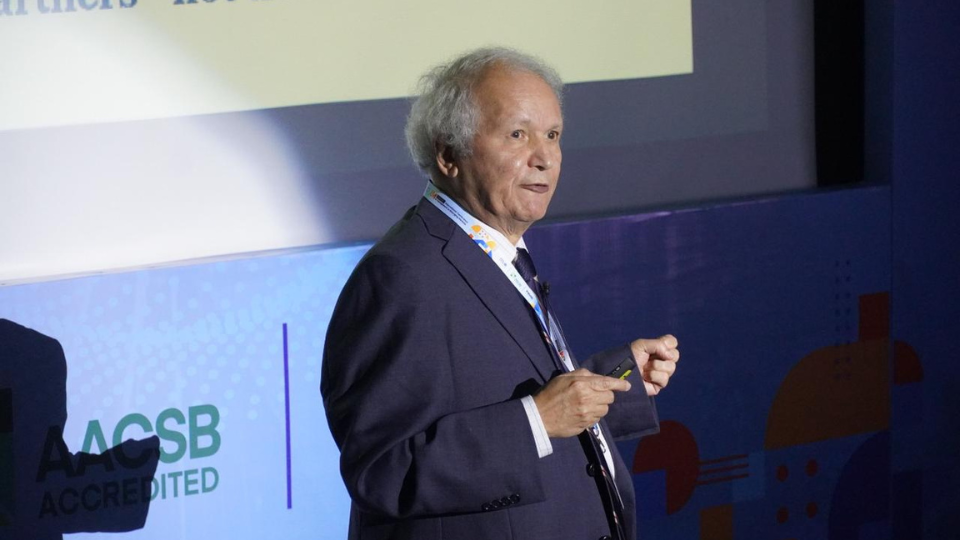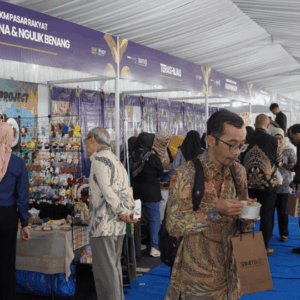Professor Shaker Zahra from the University of Minnesota challenges the conventional economic growth paradigm that focuses solely on gross domestic product (GDP). Presenting at the 9th International Conference on Management in Emerging Markets (ICMEM) organized by the SBM ITB, in Bandung (August 20-21), Zahra emphasized that what is needed now is growth that prioritizes inclusion, resilience, and equity. Continuous technological innovation must also embrace the spirit of inclusion, not just expanding the scale of the economy.
“Innovation is not just about technology, but also about society, social inclusion, and the economy. The goal is to solve real, local challenges, not simply expanding the scale of technology,” Prof. Zahra stated before an audience of academics, business practitioners, and policymakers. Prof. Zahra emphasized that Environmental, Social, and Governance (ESG) principles are no longer an option for companies and countries in emerging markets, but rather a strategic imperative. “For emerging markets, ESG is strategic, not optional,” he emphasized. He explained that global investors are increasingly prioritizing ESG performance in decision-making, that a robust ESG framework can mitigate risk and enhance long-term value, and that consumers prefer brands with social and environmental integrity.
Zahra touched on another transformative solution: the circular economy. This model disrupts the traditional “take-use-dispose” system by introducing a regenerative approach where resources are used for as long as possible through the process of refusing, reforming, reducing, reusing, and recycling. To achieve this, Prof. Zahra highlighted the crucial role of leaders and institutions in shaping a sustainable future. She outlined several strategic steps, including investing in People, Planet, and Productivity (3Ps), focusing on education for green and digital jobs, supporting small and medium-sized enterprises with sustainable business models, and developing inclusive urban planning. As inspiration, she cited several developing countries that have become leaders, including Indonesia with its smart and green cities plan, India with its National Solar Mission, and Rwanda, which excels in inclusive health technology innovation. “Complex challenges demand multi-stakeholder solutions. No single actor, whether government, business, or civil society, can succeed alone. Sustainable growth requires collective action based on trust, transparency, and a shared vision,” he said.
This speech provided a new perspective that sustainability and innovation are mutually reinforcing partners, not interchangeable options. For developing markets, this is a strategic path to building resilient, equitable, and competitive economies in the global marketplace.





